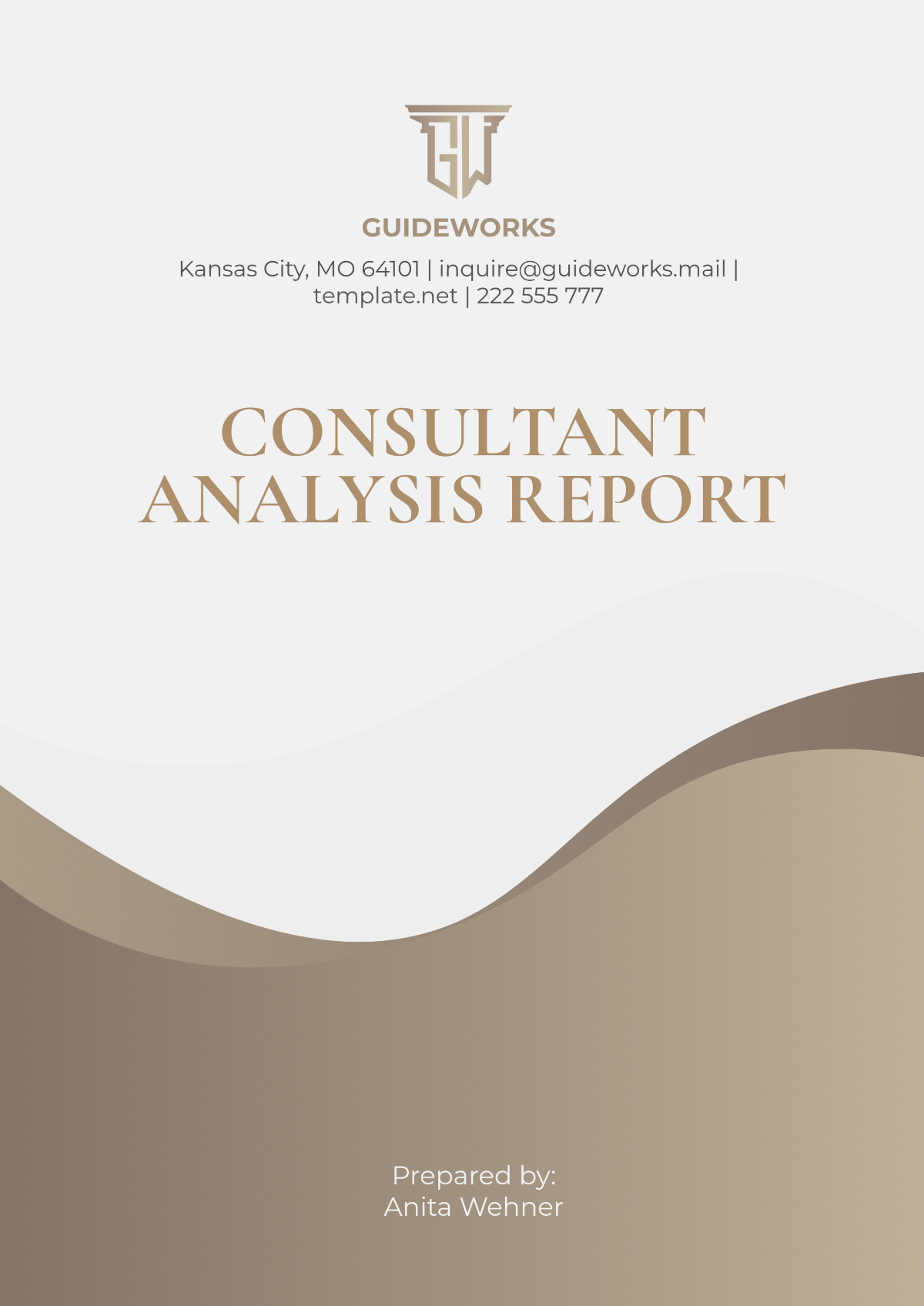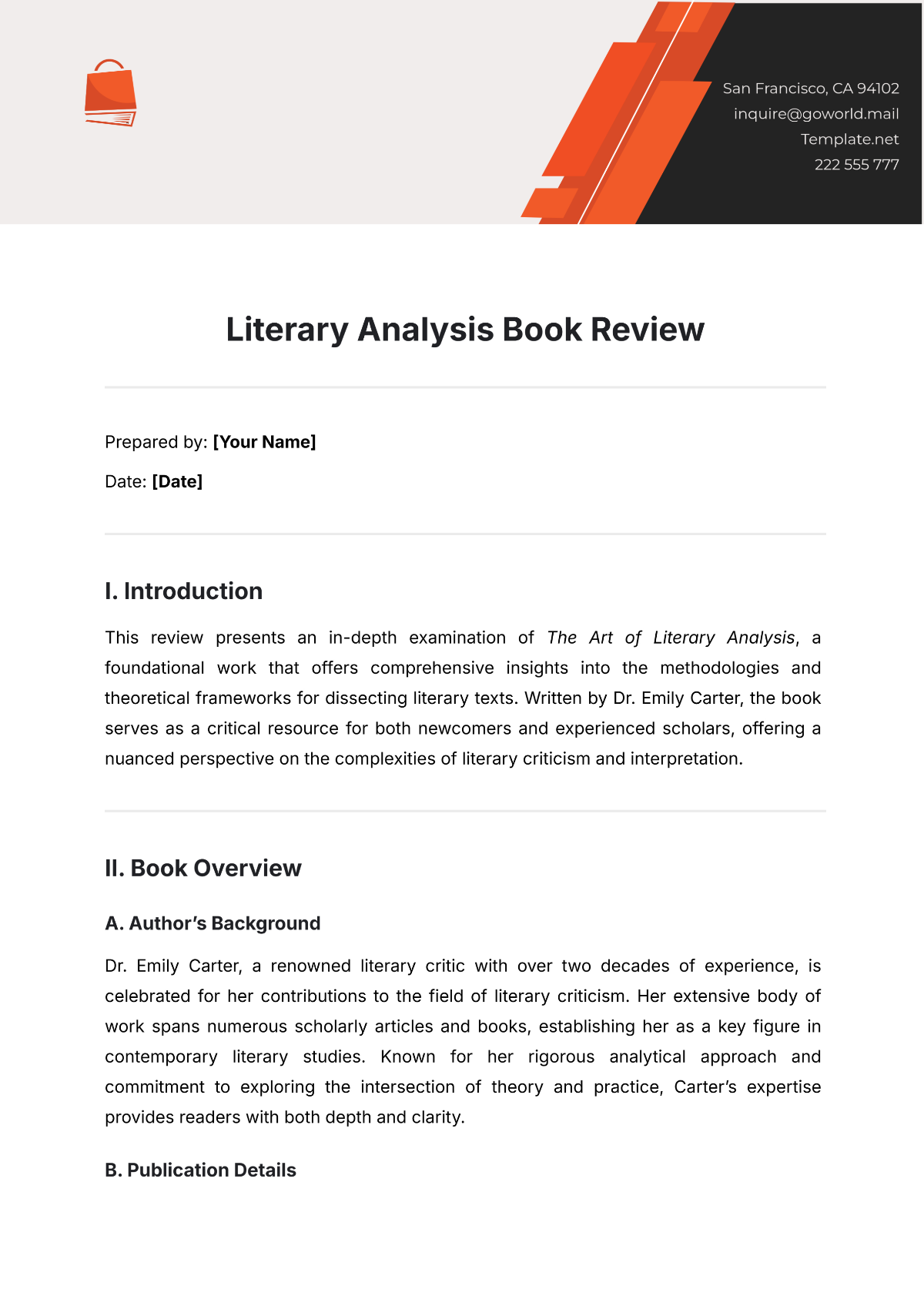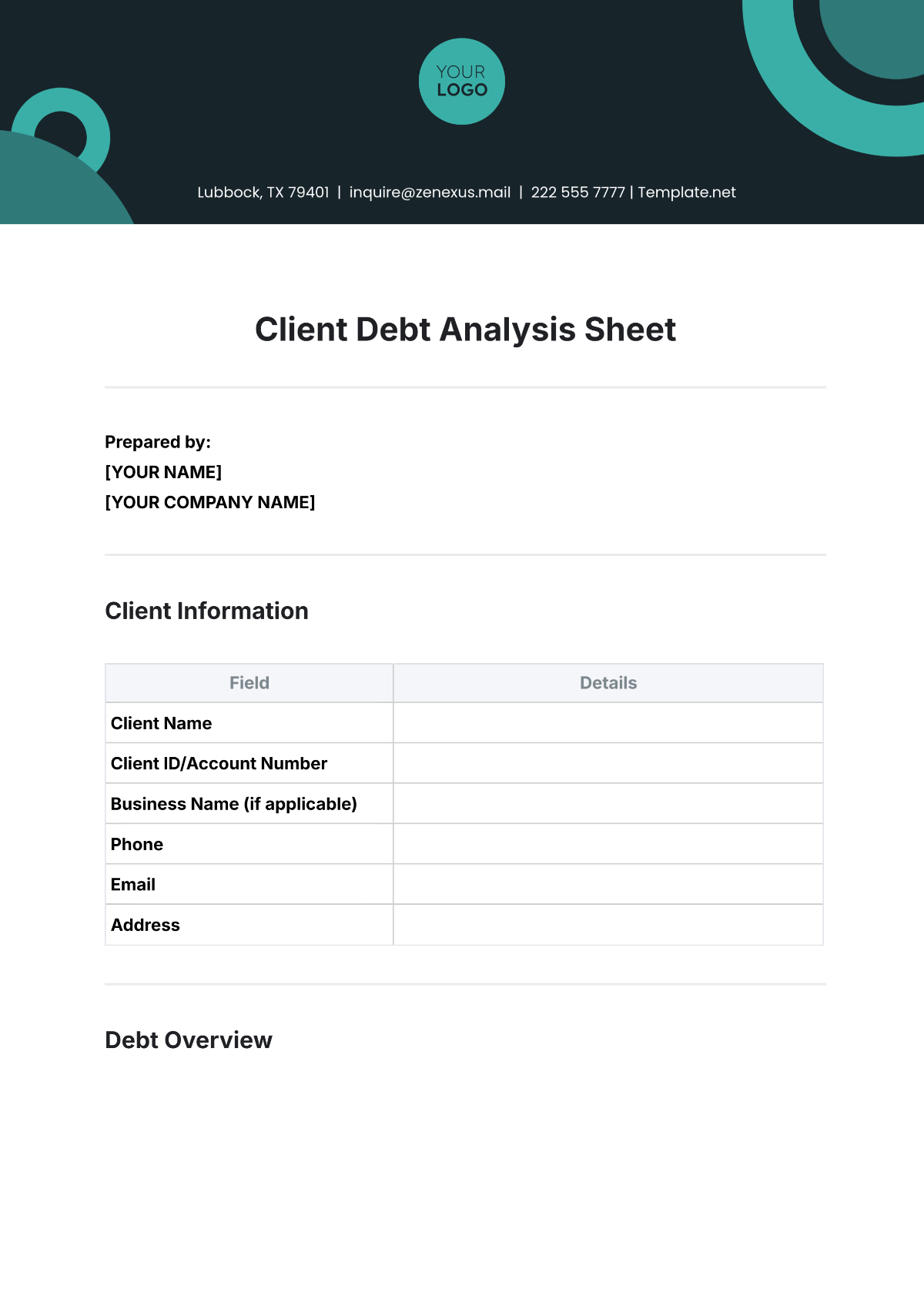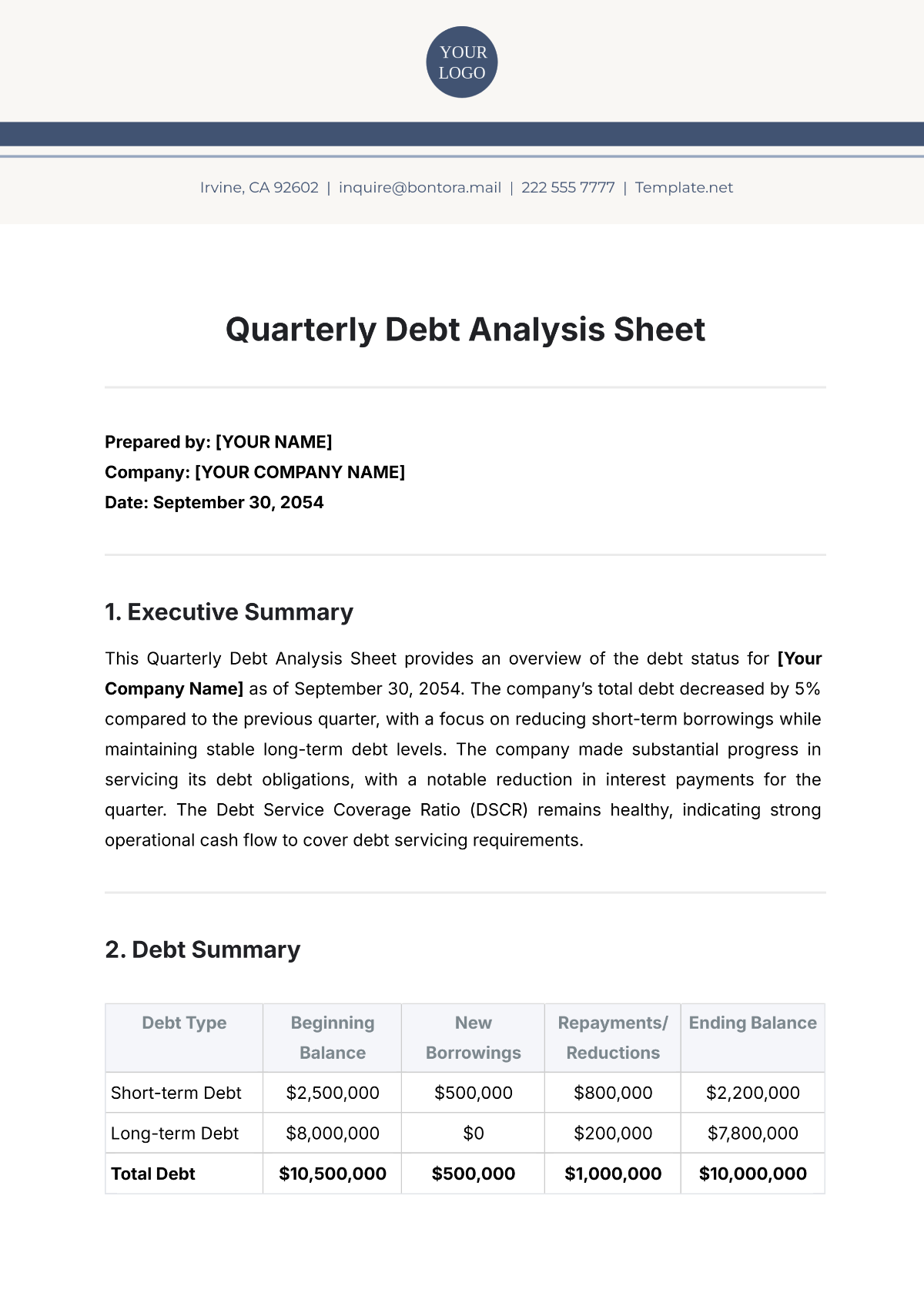Comparative Case Study Thematic Analysis
Prepared by: [YOUR NAME]
Company: [YOUR COMPANY NAME]
Date: [DATE]
I. Introduction
Comparative Case Study Thematic Analysis is an essential research method used primarily in qualitative research to systematically identify, analyze, and compare themes or patterns across multiple cases. By understanding these patterns, researchers can uncover similarities, differences, and relationships between various instances of a phenomenon within a specific context or subject area.
II. Methodology
A. Case Selection
The first step in a comparative case study thematic analysis is selecting the cases to be compared. The selection criteria can include:
Relevance to the research question
Diversity in context or subjects
Availability and richness of data
B. Data Collection
Once cases are selected, data collection methods such as interviews, observations, and document analysis are used to gather comprehensive information on each case.
C. Coding Process
After data collection, the next step involves coding the data to identify significant themes or patterns. This process includes:
Open Coding: Initial identification of themes.
Axial Coding: Linking codes and identifying relationships.
Selective Coding: Refining and finalizing themes.
D. Theme Development
The final step is developing themes by organizing codes into coherent patterns which can provide a deeper understanding of each case.
III. Case Study Analysis
A. Case Study 1: Implementation of Remote Work Policies in Tech Company A
Description and Context:
Tech Company A, a mid-sized software development firm, implemented a comprehensive remote work policy in response to the COVID-19 pandemic. The company aimed to maintain productivity while ensuring employee well-being through flexible work arrangements. The case study focuses on the effects of this policy on employee performance, job satisfaction, and company culture.
Key Themes
Theme | Description | Examples |
|---|---|---|
Employee Productivity | The impact of remote work on employee output. | An increase in daily task completion rates was observed among software developers. |
Job Satisfaction | How remote work influenced employees' job satisfaction. | Surveys showed higher satisfaction levels due to flexible work hours. |
Company Culture | Changes in company culture due to remote work. | A decline in spontaneous collaboration was noted, but virtual team-building activities helped mitigate this. |
B. Case Study 2: Implementation of Remote Work Policies in Consulting Firm B
Description and Context:
Consulting Firm B, a large multinational company, also adopted remote work policies during the pandemic but faced challenges due to the nature of its client-facing business. The case study examines the impact of remote work on client interactions, project delivery, and employee engagement.
Key Themes
Theme | Description | Examples |
|---|---|---|
Client Interaction | How remote work affected communication with clients. | Consultants reported difficulties in maintaining client relationships without face-to-face meetings. |
Project Delivery | The influence of remote work on meeting project deadlines. | Some projects experienced delays due to coordination challenges among remote teams. |
Employee Engagement | Employee engagement and morale under remote work. | A decrease in engagement was noted, with employees feeling isolated despite virtual check-ins. |
IV. Comparative Analysis
A. Similarities
Theme: Employee Productivity/Project Delivery:
Both companies observed changes in work output, although in different contexts. Tech Company A saw an increase in productivity due to flexible schedules, while Consulting Firm B experienced delays in project delivery due to remote coordination challenges.Theme: Employee Engagement/Job Satisfaction:
Both companies had to address the impact of remote work on employee well-being. While Tech Company A saw an improvement in job satisfaction, Consulting Firm B noted a decrease in engagement, highlighting the importance of industry-specific challenges in remote work implementation.
B. Differences
Theme: Client Interaction:
Consulting Firm B faced significant challenges in maintaining client relationships remotely, a theme not relevant to Tech Company A, where client interaction was minimal.Theme: Company Culture:
Tech Company A managed to adapt its company culture to remote work through virtual team-building activities, whereas Consulting Firm B struggled to keep employees engaged, reflecting different approaches to maintaining company culture in a remote setting.
C. Relationships
Relationship 1:
There is a relationship between remote work policies and employee satisfaction/productivity in both cases. The flexibility of remote work directly influenced job satisfaction in Tech Company A, which in turn boosted productivity. In Consulting Firm B, however, the lack of face-to-face interaction with clients and colleagues negatively impacted both engagement and project delivery.Relationship 2:
The level of client interaction required by the business model plays a crucial role in the success of remote work policies. Companies with heavy client-facing roles, like Consulting Firm B, may struggle more with remote work compared to those with less client interaction, like Tech Company A.
V. Discussion
The findings from these case studies suggest that while remote work can enhance productivity and job satisfaction in some contexts, such as in Tech Company A, it may present significant challenges in others, particularly in industries that rely heavily on client interaction, as seen in Consulting Firm B. This underscores the importance of tailoring remote work policies to the specific needs and contexts of each organization.
VI. Implications
A. Implications for Theory
The findings from the comparative case study contribute to existing theories on remote work by highlighting the nuanced impacts of industry-specific factors. For instance, while flexibility in work hours can improve job satisfaction and productivity in tech companies, the same flexibility may lead to coordination challenges in client-focused industries like consulting. These insights can help refine theories on the relationship between work environment and employee performance.
B. Implications for Practice
Organizations should consider tailoring remote work policies to their specific industry needs. For tech companies, fostering flexibility and virtual team-building activities can enhance productivity and maintain company culture. On the other hand, consulting firms might need to focus on improving virtual client engagement strategies and enhancing remote communication tools to mitigate the challenges posed by a lack of face-to-face interaction.
C. Implications for Future Research
Future research should explore remote work's long-term impacts across different industries, with a focus on how specific business models influence the success of remote work policies. Additionally, research could investigate the role of technology in overcoming remote work challenges, such as the development of tools that better facilitate virtual client interactions.
VII. Limitations
A. Study Limitations
This study's findings are based on a limited number of cases within specific industries (tech and consulting), which may not be generalizable to other sectors. Additionally, the study primarily focuses on the short-term impacts of remote work policies, leaving the long-term effects unexplored. The data is also dependent on self-reported measures of productivity, job satisfaction, and engagement, which may introduce biases.
B. Impact on Findings
The limited scope of industries and the reliance on qualitative data may affect the generalizability of the findings. While the study provides valuable insights into the effects of remote work in specific contexts, caution should be exercised in applying these findings to different industries or broader populations. The study’s conclusions should be viewed as indicative rather than definitive, and further research is needed to validate the results across a wider range of cases and over a longer period.
VIII. Conclusion
This comparative case study, conducted by [YOUR COMPANY NAME], highlights the differential impacts of remote work policies across industries. In the tech industry, remote work can enhance productivity and job satisfaction when implemented with flexibility and a supportive company culture. In contrast, client-facing industries like consulting may face challenges in maintaining client relationships and project delivery, indicating the need for tailored remote work strategies. The study underscores the importance of context in the success of remote work policies and suggests that a one-size-fits-all approach may not be effective. [YOUR COMPANY NAME] recommends that future research continue to explore these dynamics, particularly with a focus on long-term outcomes and technological innovations that could support remote work in more challenging environments.

















































